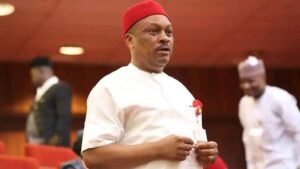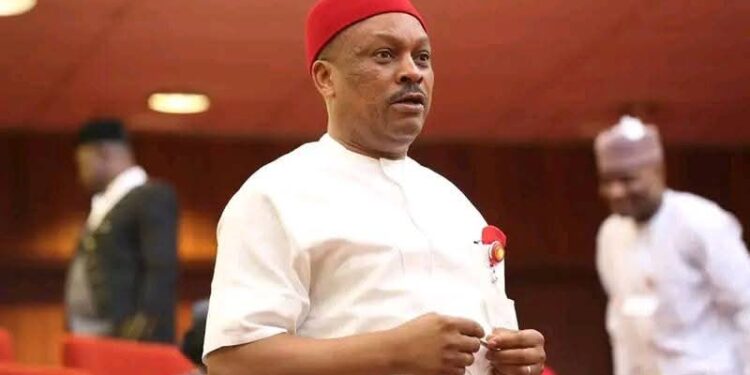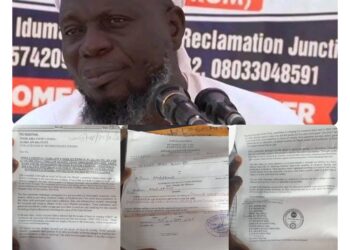
By Ibrahim Kegbegbe
The Supreme Court of Nigeria has reinstated Senator Samuel Anyanwu as the National Secretary of the Peoples Democratic Party (PDP) overturning an earlier judgment by the Court of Appeal in Enugu that had removed him from office. The ruling, delivered on Thursday, March 21, 2025, has intensified tensions within the PDP, as Anyanwu is widely seen as a key loyalist of Nyesom Wike, the Minister of the Federal Capital Territory and former Governor of Rivers State.
The Supreme Court set aside the lower courts’ decisions, declaring that they lacked jurisdiction over what it described as the internal affairs of the PDP. However, the judgment is already sparking fresh controversy, with political observers seeing it as a victory for Wike’s faction within the party, which has been locked in a fierce battle for control of the PDP’s leadership.
A Legal Battle Fueled by Political Rivalry
The struggle over the PDP’s National Secretary position took a dramatic turn after Anyanwu contested the 2024 Imo State governorship election as the party’s candidate. Some party stakeholders, particularly those opposed to Wike’s influence, argued that Anyanwu had effectively resigned from his position by running for governor. This led to the party leadership moving to replace him with Sunday Udeh-Okoye, a former PDP National Youth Leader, who is reportedly backed by anti-Wike elements in the party.
A Federal High Court in Enugu ruled in favor of Udeh-Okoye, a decision later upheld by the Court of Appeal. However, Anyanwu challenged the ruling at the Supreme Court, alleging that his removal was politically motivated and part of a larger scheme to weaken Wike’s hold on the party’s structure.
Supreme Court’s Verdict: Legal or Political?
Delivering judgment, the Supreme Court justices ruled that the lower courts had no authority to determine matters concerning a political party’s internal administration, particularly regarding the appointment and replacement of officers. The court emphasized that such decisions should be governed by the PDP’s constitution and internal mechanisms, not external judicial interventions.
However, critics argue that the ruling may embolden Wike’s camp, which has been at odds with the PDP’s mainstream leadership since the 2023 general elections. Legal analysts warn that while the judgment sets a precedent for intra-party disputes, it also highlights how factional struggles within the PDP continue to shape judicial battles over party leadership.
Anyanwu Speaks, But Will the PDP Remain United?
Following the ruling, Anyanwu expressed gratitude to the Supreme Court, stating, “This judgment is a victory not just for me, but for democracy and the rule of law. I remain committed to serving our great party and ensuring its unity ahead of the 2027 general elections.”
But party insiders believe the battle is far from over. Anyanwu had previously claimed that his ousting was orchestrated by party leaders determined to undermine his influence because of his close ties to Wike. With his reinstatement, questions arise over whether this decision will further polarize the PDP or force a realignment of power within the party.
Udeh-Okoye and his supporters have yet to make an official statement on the ruling, but tensions within the party are expected to escalate. Some party stakeholders fear that Wike’s increasing influence over PDP structures could trigger fresh internal conflicts, especially as the 2027 general elections approach.
Victory or a Deeper Crisis?
The Supreme Court’s ruling may have resolved the legal aspect of the battle, but it has intensified the political turmoil within the PDP. While Anyanwu and his allies celebrate, the decision raises serious questions about the balance of power within the party. Will the PDP leadership accept this verdict without further internal resistance, or will this ruling deepen the factional rift, leading to a fresh crisis ahead of the next elections?
One thing is certain: the PDP remains a battleground, and this Supreme Court decision is only the latest chapter in the party’s ongoing power struggle.
















